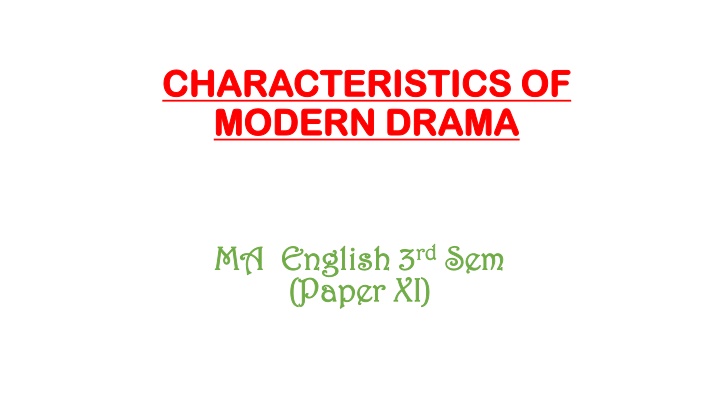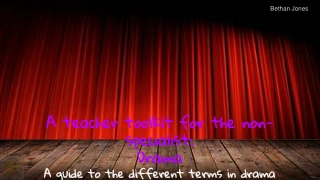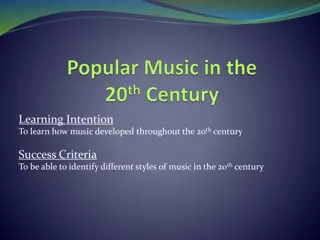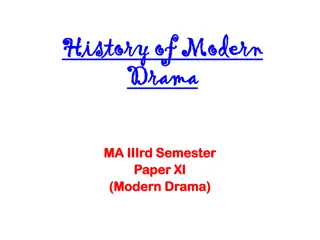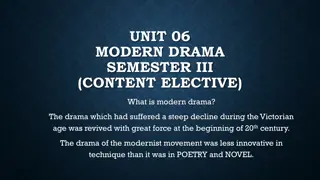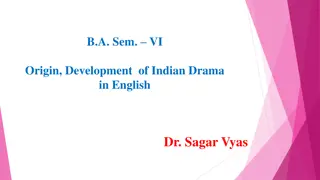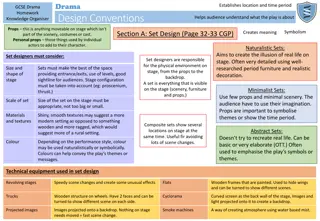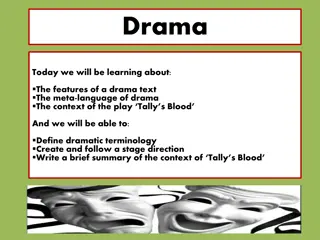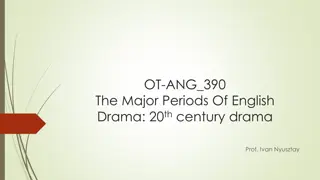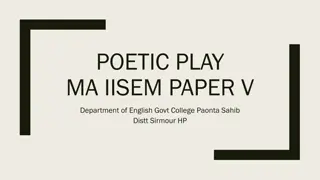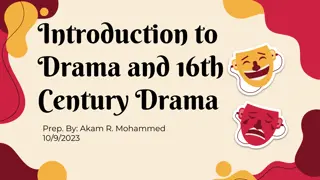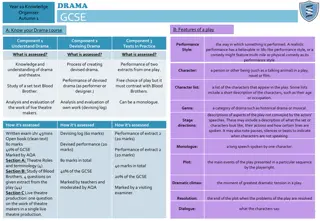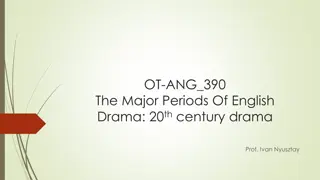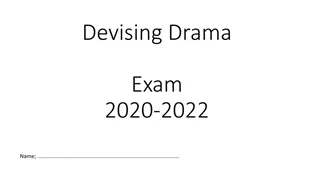Evolution of Modern Drama in the 20th Century: Characteristics and Trends
Modern drama in the 20th century experienced a revival and various trends. Realism was a significant quality where dramatists like Ibsen focused on portraying real problems of life. Problem plays emerged, addressing societal issues like marriage and justice. Modern drama shifted towards being a stage for expressing ideas rather than action, reflecting intelligence and depth. The influence of Romanticism added a new dimension to the evolving landscape of modern English drama.
Download Presentation

Please find below an Image/Link to download the presentation.
The content on the website is provided AS IS for your information and personal use only. It may not be sold, licensed, or shared on other websites without obtaining consent from the author.If you encounter any issues during the download, it is possible that the publisher has removed the file from their server.
You are allowed to download the files provided on this website for personal or commercial use, subject to the condition that they are used lawfully. All files are the property of their respective owners.
The content on the website is provided AS IS for your information and personal use only. It may not be sold, licensed, or shared on other websites without obtaining consent from the author.
E N D
Presentation Transcript
CHARACTERISTICS OF CHARACTERISTICS OF MODERN DRAMA MODERN DRAMA MA English 3 MA English 3rd (Paper XI) (Paper XI) rdSem Sem
What is Modern Drama Modernist Movement in England was much less innovative in technique than it was its poetry and novel. The drama which had suffered a steep decline during the Victorian Age was revived with great force at the beginning of the 20thcentury and the course of six decades has witnessed many trends and currents in the 20th-century drama
Modern Drama Characteristics Realism Realism is the most significant and outstanding quality of Modern English Drama. The dramatists of the earlier years of the 20th century were interested in naturalism and it was their endeavor (try) to deal with real problems of life in a realistic technique to their plays. It was Henrik Ibsen, the Norwegian dramatist who popularised realism in Modern Drama. He dealt with the problems of real life in a realistic manner of his play. His example was followed by Robertson Arthur Jones, Galsworthy and G. B. Shaw in their plays
Problem Play The modern drama has developed the and there are many Modern Dramatists who have written a number of problem plays in our times. They dealt with the problems of marriage, justice, law, administration, and strife between capital and labor in their dramas. They used theatre as a means for bringing about reforms in the conditions of society prevailing in their days. Henrik Ibsen s play A Doll s House is a good example of a problem play
Problem Play Problem Play The problem play was a new experiment in the form and technique and dispensed with the conventional devices and expedients of theatre.
Play of Ideas Modern Drama is essentially a drama of ideas rather than action. The stage is used by dramatists to give expression to certain ideas which they want to spread in society. Modern Drama dealing with the problems of life has become far more intelligent than ever it was in the history of drama before the present age. With the treatment of actual life, the drama became more and more a drama of ideas, sometimes veiled in the main action, sometimes didactically act forth.
Romanticism The earlier dramatists of the 20thcentury were Realists at the core, but the passage of time brought in, a new trend in Modern Drama. Romanticism, which had been very dear to Elizabethan Dramatists found its way in Modern Drama and it was mainly due to Sir J.M. Barrie s efforts that the new wave of Romanticism swept over Modern Drama for some years of the 20thcentury. Barrie kept aloof from realities of life and made excursions into the world of Romance.
Poetic Plays T.S. Eliot was the main dramatist who gave importance to poetic plays and was the realistic prose drama of the modern drama. Stephen Phillips, John Drink Water, Yeats, etc were from those who wrote poetic plays.
History and Biographical Plays Another trend, visible in the Modern English drama is in the direction of using history and biography for dramatic technique. There are many beautiful historical and biographical plays in modern dramatic literature. Shaw s Caesar and Cleopatra are historical plays of great importance. John Drink Water s Abraham Lincoln and Mary Stuart are also historical plays.
Irish Movement A new trend in the Modern English Drama was introduced by the Irish dramatists who brought about the Celtic Revival in the literature. In the hands of the Irish dramatists like Yeats, J.M. Synge, T.C. Murrey etc. drama ceased to be realistic in character and became an expression of the hopes and aspirations of the Irish people from remote ways to their own times.
Comedy of Manners There is a revival of the Comedy of Manners in modern dramatic literature. Oscar Wild, Maugham, N. Coward, etc. have done a commendable job to revive the comedy of wit in our days. The drama after the second has not exhibited a love for comedy and the social conditions of the period after the war is not very favorable for the development of the artificial comedy of the Restoration Age.
Impressionism Another important feature of modern drama is Impressionism. It is a movement that shows the effects of things and events on the mind of the artist and the attempt of the artist to express his expressions. In the impressionistic plays of W.B. Yeats, the main effort is in the direction of recreating the experience of the artist and his impressions about reality rather than in presenting reality as it is. The impressionistic drama of the modern age takes into consideration the impressions on the artist.
Expressionism Expressionism is another important feature of modern drama. It marks an extreme reaction against naturalism. It is a movement that tries to express the feelings and emotions of the people rather than objects and events. The movement which had started early in Germany made its way in England drama and several modern dramatists like C.K. Munro, Elmer Rice, J.B. Priestly, Sean O Casey, have made experiments in the expressionistic tendency in modern drama.
